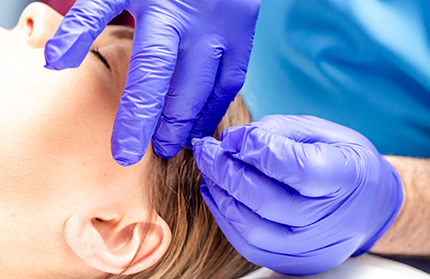
Known as the “art of controlled movements”, Pilates has become one of the go-to fitness systems for individuals looking to build strength, develop control, and improve flexibility and balance. Pilates is a form of exercise that was created in the early 20th century by Joseph Pilates. Initially this style of exercise was developed for injured soldiers who were confined to their beds and needed to regain movement and flexibility.
Although Pilates has been around for quite some time, it has just now started to gain some form of popularity over the past decade or so. Because Pilates hasn’t always been as well-known as some of the other forms of exercises, there are many things that the average person doesn’t know about this style of exercise. Listed below are a few.
1. Pilates is not a form of Yoga. One of the most common misconceptions is that Pilates was derived from a form of Yoga. This is not the case. Pilates is its own physical fitness system. Like Yoga, Pilates was created with the belief that both mental health and physical health are interconnected. However, exercises within the Pilates system have a much more direct effect on your physical body than that of Yoga. Pilates exercises are geared towards improving flexibility, breathing, strength, coordination, control, and balance. Although the two forms are similar, ultimately they each have different agendas.
2. Pilates can burn calories all day long. If you walk into any gym, most likely you will observe numerous people spending hours on the cardio machines. While that form of fitness training has been proven to be effective in terms of burning calories during the workout, it fails to do so once you are finished exercising. This is where Pilates is different. Given that Pilates integrates a form of resistance training, it will not only burn calories while you are performing the exercise, but it will help you to continue to burn calories throughout the day. This is largely because Pilates tends to increase lean muscles which will help improve your metabolism.
3. Pilates can improve self-efficacy, sleep quality and mood. One of the underpinnings of Pilates is that mental and physical health are interrelated. The effects of this have been further proven by a study conducted by Caldwell, Harrison, Adams, and Triplett. The study looked at whether a semester of Pilates could improve “self-efficacy, sleep quality and mood”. The results of the study state the following: “Self-efficacy was found to be improved in the group that participated in Pilates and there was a trend towards improvement in sleep quality. Mood was found to be improved significantly in the Pilates group”, (Caldwell). This study suggests that in addition to the physical benefits, Pilates can also provide a variety of mental health benefits as well.
4. Pilates can help to improve posture. One of the main elements of Pilates is ensuring that you are properly aligned during the exercises. It is for this reason that those who engage in Pilates tend to become more aware of how their body is positioned. This new found awareness coupled with the fact that Pilates tones and strengthens your core muscles, will often result in improved posture.
5. Quality is more important than quantity. Some people mistakenly think that the more reps they do of a specific exercise, the better the effect. Unfortunately this is not always the case. For instance, if you do 100 sit-ups using incorrect form then your workout wouldn’t be nearly as effective as it would be if you did 50 sit-ups using the correct form. With Pilates, it is more important to focus on the form and quality of the exercise that you are performing rather than the amount of reps that you are able to do. Performing each exercise correctly will help to ensure that you are working the right muscles without adding avoidable stress or tension to your body.
RPIoffers a wide range of rehabilitation services, including rehab Pilates. Our team of certified Pilates instructors work with patients to speed up the healing process of previous injuries, as well as to improve motor skills, breathing, flexibility, and much more. For a more detailed description of our rehab Pilates program click here contact one of our offices to schedule an appointment.
References
Caldwell, K., Harrison, M., Adams, M., & Triplett, N. (2008). Effect of Pilates and taiji quan training on self-efficacy, sleep quality, mood, and physical performance of college students. Retrieved from http://www.sciencedirect.com/science/article/pii/S136085920800003X
Elite Body Pilates. (2014). 5 things about Pilates. Retrieved from

